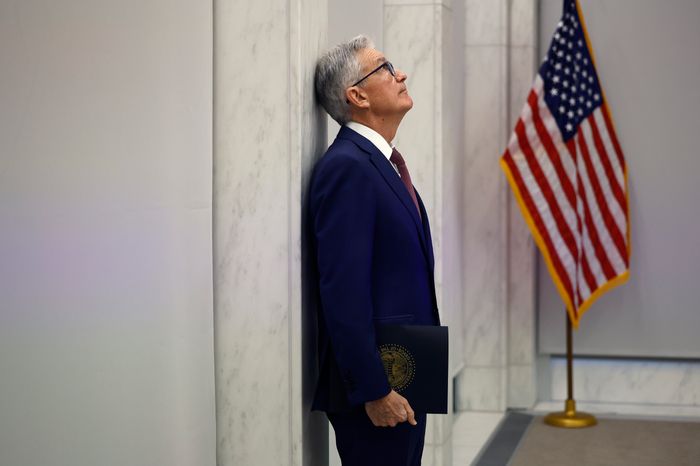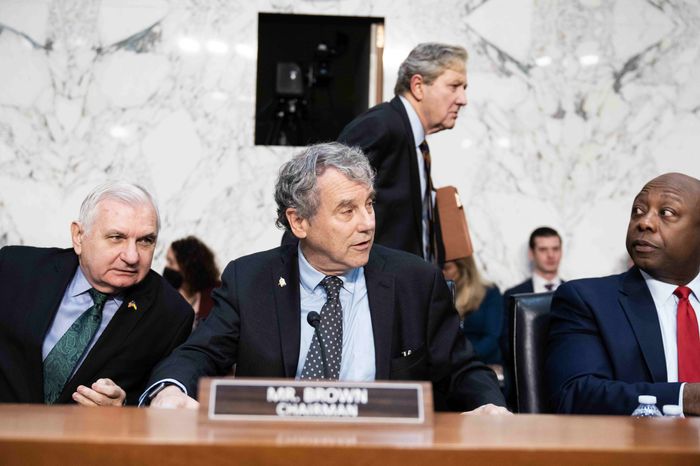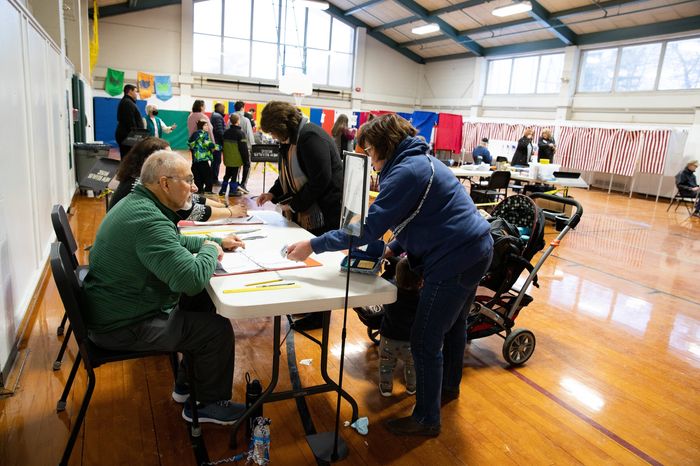
For Federal Reserve Chair Jerome Powell, deciding when to cut interest rates is hard enough: Too soon, and inflation could rise again. Too late, and unemployment might shoot higher.
The challenge is doubly difficult this year because he is doing it in the glare of election-year politics.
Allies of former President Donald Trump, the Republican front-runner, have already argued that the central bank is seeking to help President Biden by signaling that cuts are coming.
Meanwhile, some Democrats inside and outside the West Wing are nervous that the current president's re-election prospects will be jeopardized by a central bank that keeps rates too high for too long after both the Fed and the administration misjudged inflation.

In a letter Tuesday, Sen. Sherrod Brown (D., Ohio), who is chairman of the Senate Banking Committee and is up for re-election this fall, urged Powell to lower interest rates soon in an effort to make housing more affordable. "Restrictive monetary policy is no longer the right tool for combating inflation," he wrote.
'Doing our jobs'
Fed officials insist politics won't influence their decisions. "This year is going to be a highly consequential year for the Fed and for monetary policy, and we're, all of us, very buckled down and focused on doing our jobs," Powell said at a news conference Wednesday. In December, when the subject of election-year politics came up at a news conference, Powell said, "The minute we start thinking about those things -- we just can't do that."
That hasn't stopped outside analysts from surmising that the election might nonetheless at least affect the timing of a cut. And political actors might have an interest in weighing in if only to remind the Fed, and each other, that it is being watched.
While Fed actions can always alter economic, and thus, political outcomes, the potential is heightened this year because of the unusual path inflation and interest rates have followed. When inflation first surged in 2021, shortly after Biden took office, the Fed thought inflation would soon subside and it was thus slow to raise interest rates from around zero. When it finally acted, it did so dramatically, raising rates at the fastest pace in four decades to their highest level in 23 years.

The situation has once again reversed: Inflation has slowed notably over the past six months, a "very, very positive development," Powell acknowledged Wednesday. "The case is likely that it will continue to come down," he said.
Influencing the economy on Election Day
So while the Fed held its benchmark federal-funds rate steady Wednesday in a range between 5.25% and 5.5%, it is almost certain to cut them before too long just to prevent inflation-adjusted, or real, rates from rising.
When and how much it cuts might affect the state of the labor market, inflation and consumer confidence on Election Day. "This election is going to be a box canyon for Powell. The politics are going to be incredibly toxic," said Mark Spindel, chief investment officer at Chicago-based MBB Capital Partners. "No matter what Powell does, Trump will attack him. If the Fed cuts rates, he'll say they're doing it to help Biden."
Beginning in the 1990s, presidents avoided publicly complaining about the Fed. Advisers to President Bill Clinton concluded that emphasizing the Fed's independence from the executive branch would be good for the economy and, in turn, the administration.
Trump broke with that tradition. He appointed Powell, a Republican, and as Trump's trade war unsettled markets, he steadily berated the Fed chair and called for lower rates. Powell led his colleagues to cut rates three times in 2019, reversing most of the increases he had made in 2018, after officials concluded inflation wasn't as big a threat as they had feared.
Biden has mostly avoided discussing Fed policy, reverting to pre-Trump tradition. As with most presidents, his primary influence on the Fed has been through appointments. In addition to reappointing Powell, Biden has named several of the Fed's board members.
Election year precedents
It isn't unusual for the Fed to change interest rates in election years. The central bank began raising rates from historically low levels in 2004, when President George W. Bush was seeking re-election, and it unleashed a bond-buying stimulus campaign as President Barack Obama was on his quest for re-election in 2012. In 2020, it slashed rates and restarted bond-buying when the Covid-19 pandemic erupted.
Several former Fed officials hotly dispute the suggestion that politics would weigh on when or how fast the central bank lowers interest rates this year. "I can tell you straight up, it doesn't influence the discussions," said Esther George, who served as president of the Kansas City Fed from 2011 to 2023. "The committee is already of a mind here that the stakes are high for achieving a soft landing and getting inflation down."
Fed officials will be especially focused on how they communicate because everyone inside the building "is acutely aware that, during the election year, people read Fed actions through those lenses," said George.
If the Fed, for example, cuts rates in the midst of solid economic growth, "They'd have to be very clear about why that's the right thing to do in order to be very clear that this is not a political judgment," said William English, a former senior Fed economist who is a professor at Yale School of Management.
There might be little Powell can do to convince the most committed partisans that the Fed isn't motivated by politics.
But he might be able to persuade the ones that matter. During his tenure, Powell has maintained close ties with lawmakers on both sides of the aisle and spoken frequently in public to showcase the Fed's apolitical DNA. "Powell is the most politically astute chair we've had in a long time," said Spindel, who co-wrote a history of the Fed's relationship with Congress and the White House.
That might pre-emptively defang accusations that the Fed isn't being guided by the data in evaluating its policy decisions, said Spindel.
